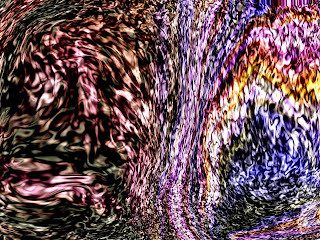Science & Art of Self-Expression
The science and art of self-expression are deeply intertwined, offering individuals a pathway to communicate their inner selves.
 People are social beings; they have to interact with others and become part of a community to improve humanity. Self-expression is the process of conveying one's thoughts, feelings, and individuality. It intertwines both scientific principles and artistic creativity, allowing individuals to communicate their unique identities and experiences.
People are social beings; they have to interact with others and become part of a community to improve humanity. Self-expression is the process of conveying one's thoughts, feelings, and individuality. It intertwines both scientific principles and artistic creativity, allowing individuals to communicate their unique identities and experiences.The Science of Self-Expression
Psychological Foundation
-Emotional Regulation: Self-expression can help individuals manage emotions. Sharing feelings can lead to reduced stress and improved mental health.
-Cognitive Processing: Articulating thoughts helps clarify ideas and enhances problem-solving abilities.
-Identity Formation: Self-expression plays a crucial role in developing personal identity, allowing individuals to explore and affirm who they are.
Neurological Aspects
-Mind Activity: Engaging in expressive activities activates various mind regions associated with emotion, creativity, and memory.
-Therapeutic Benefits: Art therapy and expressive writing have been shown to promote healing by engaging the mind’s reward system.
Social and Cultural Contexts
-Communication: Self-expression is a key component of interpersonal communication, facilitating connections with others.
-Cultural Influence: Different cultures have unique ways of expressing identity, shaping how individuals interpret and convey their experiences.
The Art of Self-Expression
Creative Mediums
-Visual Arts: Painting, drawing, and sculpture allow for non-verbal expression, conveying emotions through colors, shapes, and forms.
-Performing Arts: Music, dance, and theater provide dynamic platforms for expressing feelings and narratives.
-Literature: Writing—whether fiction, or essays—offers a profound means of exploring and sharing personal insights.
Techniques and Approaches
-Free Expression: Allowing thoughts to flow without censorship encourages authenticity.
-Symbolism: Using symbols can convey complex emotions and ideas, enriching the depth of expression.
-Collaboration: Working with others can inspire new perspectives and enhance the creative process.
Personal Reflection
-Journaling: Writing regularly can help clarify thoughts and feelings, fostering self-discovery.
-Mindfulness: Being present enhances awareness of one’s emotions and thoughts, leading to more genuine expression.
-Feedback and Growth: Sharing work with others and receiving feedback fosters improvement and confidence.
The science and art of self-expression are deeply intertwined, offering individuals a pathway to communicate their inner selves. By understanding the psychological and neurological foundations and embracing creative mediums, one can cultivate a richer and more fulfilling practice of self-expression. This journey not only enhances personal well-being but also fosters connections with others, enriching the human experience.
Follow us at: @Pearl_Zhu


